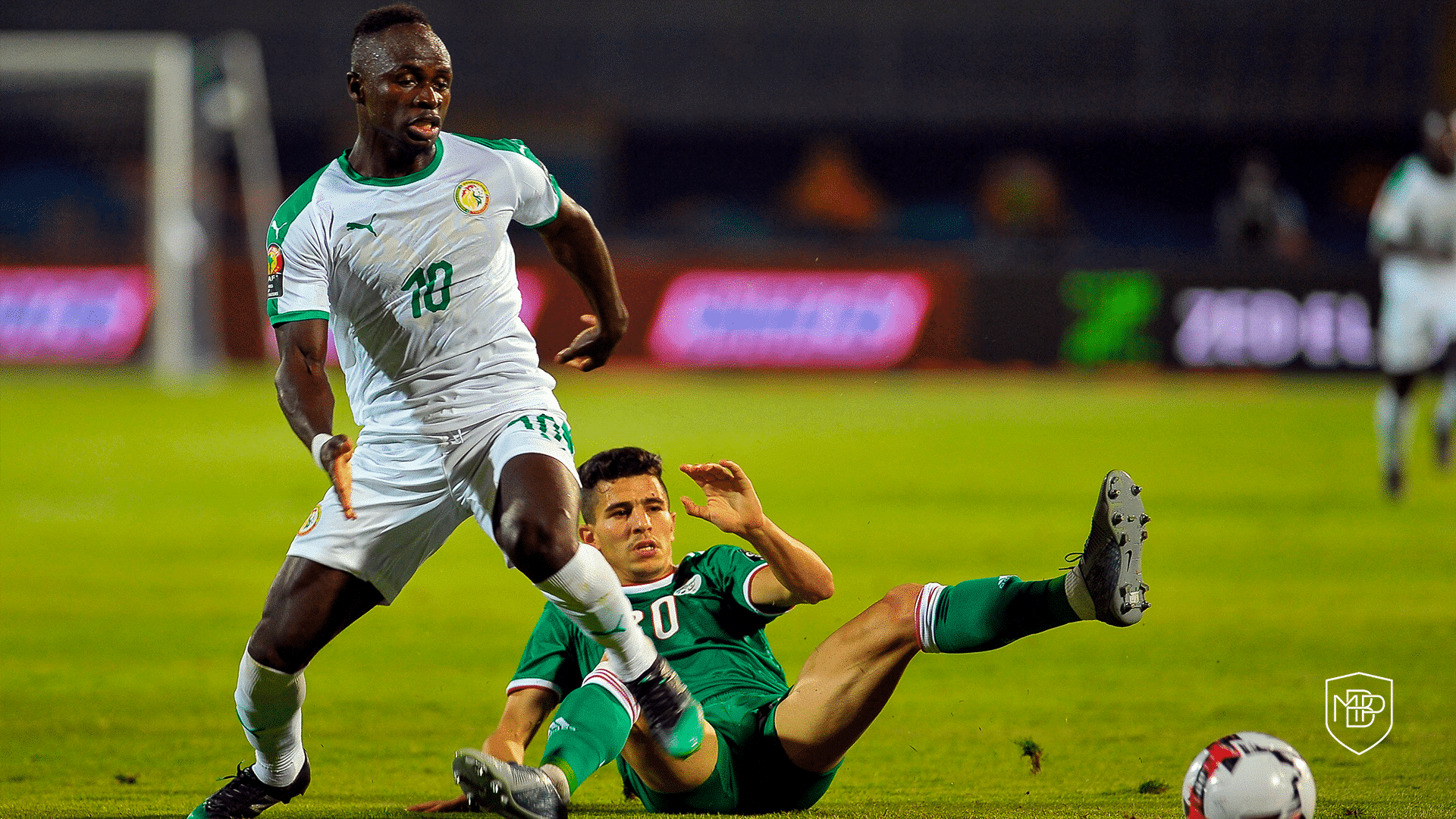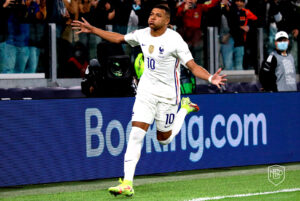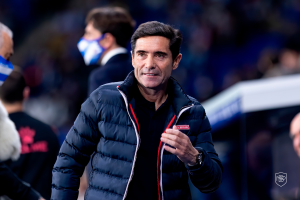Therefore, at the MBP School of Coaches, we have highlighted the players to look out for at the tournament, analyzing their individual characteristics, and evaluating what they can contribute to their national team.
Tactical Analysis
Mohamed Salah
If there is one player who stands out above the rest, it is Egypt’s Mohamed Salah. The current Liverpool player is potentially the best in the world at this current moment. At 29 years of age, Salah is at the peak of his career, having so far achieved a total of 16 goals and 6 assists for his club this season.
The Egyptian has the ability to unbalance opposition defences with a great a dribbling capacity in 1vs1 situations and deadly finishing in front of goal. In addition to his technical qualities, the player is showing an impressive cognitive ability with respect to the different requirements that the game demands of him.
Salah is increasingly able to identify the defensive imbalances in the opposition. This aspect allows him to apply different individual fundamentals such as ‘dismarking in depth into the inside spaces of the defensive imbalance’, or ‘attacking the most effective spaces’. As a consequnce of these strengths, Salah has become a fearsome player in attacking transitions when the opponent is disorganized defensively.
But which Mohamed Salah will we see during the African Cup of Nations? Although at Liverpool he is the main attacking force, Salah’s role in his country’s national team is even more significant.
Salah will not only be the main goal scorer, but he will also carry the responsibility to create play in the progression areas, helping setting up his teammates for chances.
Sadio Mané
The next player on the list is none other than Sadio Mané. The Senegalese, like his club teammate, is expected to be one of the key players at the tournament. However, unlike Salah, Mané has not enjoyed the same recent fruitful form.
Mané is a very complete player in the different structures that make up the individual, however, he is not as decisive as Salah. Moreover, the 29 year-old stands out for his great physical capacity which allows him to support his team, not only in the attacking phase, but also in the defensive one.
In addition, another aspect to discuss is his associative capacity with the collective. Mané has a strong ability to read the play, allowing him to have a great impact both in the moments of progression and finishing.
This aspect gives us a glimpse of his function as the number 10 in the team. Like the Egyptian, we will see a Mané in a playmaker role, not only being crucial to the play in the penalty area, but also in the different moments of the progression.
Riyad Mahrez
Like the other two attackers, this next player comes from a Premier League team. As part of the AFCON reigning champions Algeria, Riyad Mahrez is expected to light up the tournament with his individual brilliance.
The Manchester City winger is in fantastic form. Under Pep Guardiola, Mahrez has transformed his game, no longer being a typical wide player who relies on his 1vs1 skills.
The Algerian is now able to find different solutions to the problems posed by the opponent, not only individually, but also collectively. One aspect that stands out is his ability to apply the universal fundamental of ‘making passes to give an advantage’.
Mahrez has highly developed his peripheral vision. This aspect, together with his cognitive ability, allows him to identify any advantageous situation for his teammates inside the box, and thus be able to supply them with dangerous balls.
Therefore, unlike both Salah and Mané, Mahrez’s role within his national team will be much more specific. The attacker will be in charge of organizing the attacking phase of his team, not only in the final third, but also in the moments of build-up.
Achraf Hakimi
Finally, we must take a look at Archaf Hamiki and his potential for the tournament in Cameroon. The current PSG right back is not as an attacking player as the previous three. However, his ability to influence the different phases of the game will be vital for Morocco.
The full-back possesses a very attacking profile. Thanks to this, Hakimi is able to turn the game towards his area of the field, not only in dominating the right side, but also in having a very important role in the creation of the play.
Another aspect of the player that stands out is his speed of movement, in addition to his reactive capacity. Both aspects allow him to play a crucial role in both attacking and defensive transitions.
Therefore, similar to the previous players, the role that the Moroccan will have within his national team will be reflected in the different phases that make up the game. Hakimi will not only be important to the attacking phase, whether in organized attack or in transition, but also in the defensive facets of the play.
Conclusion
There is no doubt that this is one of the best editions of the Africa Cup of Nations at the individual talent level. In addition to the four players mentioned during the article, the tournament will be full of other players who will see their involvement in the tournament as an opportunity to showcase themselves to the world.
Therefore, at both MARCA and the MBP School of Coaches, we will be very interested in following the competition’s progress, the performances of its key stars, as well as the young African promises that are ready to emerge.







